Angela Huang Presents Research at International Science and Engineering Fair

SFSC student and Sebring High School junior, Angela Huang, presented research at the Regeneron International Science and Engineering Fair (ISEF) 2022 in Atlanta, Ga. in April. She was awarded fourth place in Cell and Molecular Biology for her research, “Fusobacterium Nucleatum as a Marker for Epithelial to Mesenchymal Transition in Colorectal Cancer.” It is an amazing recognition, as Huang was one of 1,750 students from 49 U.S. states and 53 countries who participated in Regeneron ISEF.
According to the Society for Science, the Regeneron ISEF, a program of Society for Science, is the world’s largest global science competition for high school students. Through a global network of local, regional, and national science fairs, millions of students are encouraged to explore their passion for scientific inquiry. Each spring, students are selected as finalists and offered the opportunity to compete for approximately $8 million in awards and scholarships.
Dr. Mintoo Patel, SFSC biology instructor and Huang’s research mentor, broadly explained Huang’s research: “The COVID-19 pandemic has really shifted the number of colorectal cancer screenings, decreasing them by as much as 100% in some countries. It’s more important than ever that we emphasize early detection and enhance current methods of treatment.” Huang’s research delves into this possibility.
But not only is Huang working on a research project with Dr. Patel, she’s taken on another one with Dr. Daniel Sanches, the chair of SFSC’s Natural Sciences Department and a biology instructor. “The research explores the link between melatonin, a key regulator within our circadian rhythm, and cancer within the thyroid, which has been shown to synthesize melatonin,” Dr. Sanches said. “After much trial and error, we’ve settled on examining the role of melatonin on forms of induced and natural cell death on thyroid cancer cells.”
Although working on two research projects at once seems monumental, Huang is unconcerned. “With research, you’re not going to have constant progress on your project all the time,” she said. “At a certain point, one project will slow down. So I thought, ‘If this one’s slowing down, I may as well work on another one.’”
Huang has made other presentations at scientific conferences over the last year, including the prestigious Experimental Biology (EB) annual meeting that was held in Philadelphia in April. EB is an annual meeting of five scientific societies that explores the latest biomedical research. Closer to home, Huang has consistently earned kudos while participating in high school science fairs. For her research on colorectal cancer, she placed first in Cell and Molecular Biology at the District Highlands County Science Fair, first place in Cell and Molecular Biology at the Heartland Regionals Science Fair, and second place in Cell and Molecular Biology at the State Science and Engineering Fair of Florida, which attracted 900 participants.
Huang will enter her senior year at Sebring High School in the fall. She’s undecided about what university she plans to attend after graduation; however, her sights are set on majoring in neuroscience. Her mother, who is a cardiologist, may have influenced Huang’s future career choice. Although Huang is interested in medicine, she’d like to become a physician scientist.
Dr. Patel indicated that undergraduate research benefits Angela and other students in a variety of ways. “Angela can learn about the field she is contemplating going into,” Dr. Patel said. “She’s learning about all the diseases that are prevalent and what we can do about it. She wants to be a physician scientist, so she’s doing the research at SFSC on diseases that are prevalent in our community. That’s a real-life application of what’s she’s learning in the classroom and she’s taking a deeper dive into the subject and seeing what her career will look like. Presenting at the Regeneron ISEF, Angela not only interacted with peers, but Nobel laureates attended and spoke,” Dr. Patel said. “Top scientists attended the conference.”
Dr. Patel encourages other students to participate in research as undergraduates. “Students don’t come to SFSC knowing everything,” she said. “It’s our job to teach them. So, we teach them in many different ways. But project-based learning gives them a deeper insight into different subjects. They can steer their project as far as their curiosity goes. It creates a passion for the subject. If there’s passion, the students are going to take that responsibility of learning. They want to know more, so that’s why they’re going to do more.”
For more information about undergraduate research at SFSC, contact Dr. James Hawker, dean of arts and sciences, at ext. 7329 or james.hawker@southflorida.edu.


